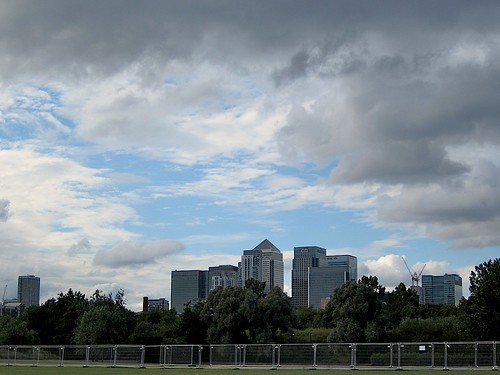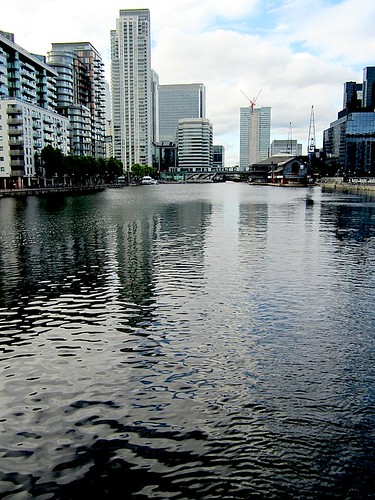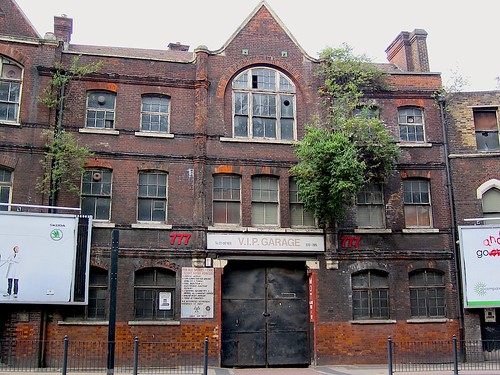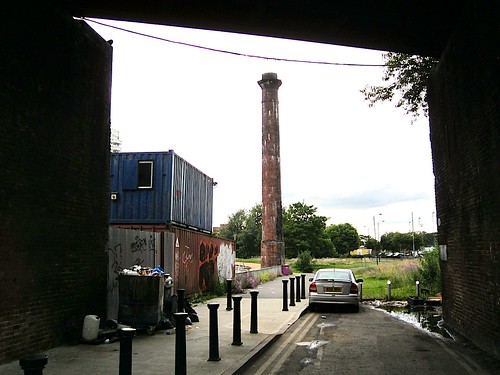Development Frenzy: Photos of the Regent’s Canal from St. Pancras Basin to King’s Cross
This set of photos is the 40th in my ongoing project to photograph the whole of London by bike, which I began in May, and it follows on from three previous sets recording a particular journey I made on September 3, 2012, when I cycled from Tottenham Court Road, up Hampstead Road to Mornington Crescent, and then along Camden High Street, through busy Camden with its many lively markets to the Regent’s Canal.
From there I cycled along the tow path of this wonderful artery that avoids the traffic-choked chaos of London’s roads to St. Pancras Basin and King’s Cross — or, to be specific, the King’s Cross development project that is currently underway, which, it seems to me, is rather dangerously at odds with the spirit of the canal, as a place of calm, and an antidote to the clamour of money that is so incessant elsewhere. Read the rest of this entry »
At Dusk: Photos of the Regent’s Canal from Camden Lock to St. Pancras Basin
At Dusk: The Regent’s Canal from Camden Lock to St. Pancras Basin, a set on Flickr.
Out of London’s many attractions, its wonderful canals are relatively unknown, which is, to be honest, inexplicable, as they are an endlessly fascinating — and generally very soothing — antidote to the capital’s often stressful roads.
Both of London’s major canals — the Regent’s Canal, and the Limehouse Cut — feed into the Limehouse Basin, between Tower Bridge and the Isle of Dogs, which was once so busy that it was said that it was possible to walk the whole way across the dock from boat to boat. It opened in 1820 as the Regent’s Canal Dock, joining the River Thames to the whole of the national canal system in the decades that followed. Read the rest of this entry »
My Photos on Flickr: The Isle of Dogs and Regent’s Canal, July 2012
The Isle of Dogs and Regent’s Canal, July 2012, a set on Flickr.
In the latest set of photos uploaded to my recently established Flickr account, I’ve posted photos that I took on the American Day of Independence, July 4, 2012, when I spoke at a screening of “Extradition,” a film about Talha Ahsan and Babar Ahmad, two British citizens facing extradition to the US on the basis of the grossly unfair and unjust US-UK Extradition Treaty. The screening was at no.w.here, a not-for-profit artist-run organization based in Tower Hamlets, which “combines film production alongside critical dialogue about contemporary image making,” and it was an excellent evening, even though the subject matter, and the urgency of the men’s plight, cast a sense of anguish over the entire event.
As part of my new and ongoing project to cycle everywhere in London, and to photograph my journeys, capturing aspects of the built environment, of nature, and of money and power, set against decay, poverty and the odd, untouched backwater (see here, here and here for the previous sets of my London journeys), I was delighted to travel to the east end of Bethnal Green Road, near Cambridge Heath Road, which, it slightly shames me to admit, I had never visited before, although I am familiar with the western end of the road — at the northern end of Brick Lane.
What I found was a vibrant, ethnically mixed neighbourhood, with independent businesses in tall terraced Victorian buildings, although I soon learned, from immediately striking up a conversation with Brad Butler, one of the founders of no.w.here (along with Karen Mirza) that the forces of gentrification have designs on the street, as they do on so much of London — right here and right now — despite the recession that is afflicting all but the rich and the super-rich. As ever, it alarms me profoundly that this appears to be, essentially, the first engineered recession in history, as the rich are excluded from the effects of the government-engineered austerity that otherwise stalks the land, driving the working poor, the young, the old, the ill, the unemployed and the disabled into unprecedented poverty, while protecting those with money from any kind of suffering, even though those in the City who drove the artificial and illegal wealth creation that caused the financial crash in 2008, and those who made money out of it, are the ones who should paying the most. Read the rest of this entry »


































































 Who's still at Guantánamo?
Who's still at Guantánamo?
